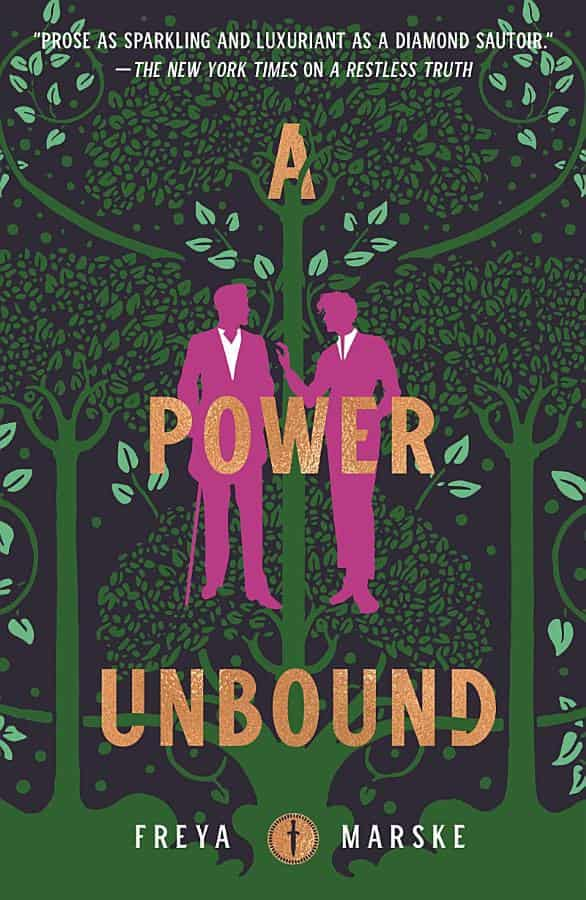Here is my theory from book 2: the Blyths suit me best in small doses. Robin and Maud, respectively, were the most difficult parts of their own books for me. They’re just so young, energetic, athletic, upstanding, so shiny, so beautiful, so aggressively… “normal,” for lack of a better word, when I prefer crankiness and weariness and a bit of tarnish on the bronze these days.
Here, their presence in the ensemble was a much better balance. Enough without too much.
And that clears the decks for Jack, deeply scarred, and Alan, deeply insolent, to take center stage. In book 2, they’re stalking around each other and scrapping like alley cats in the background, and that dynamic ratchets up a few notches here, to my endless pleasure.
It’s the best of the trilogy, by a long shot. And/or it just hit every one of my preferences in a perfect way. The kinky power dynamics vs. real world politics. The class differences. The exquisite emotional development. The betrayal that is immediately understood and admired. Crackling tension and careful tenderness.
Complexity galore, KJ Charles style. At least for the romance—the fantasy still lagged a step behind the best KJC plotting. There were some WTF turns, but ultimately I really liked where it went, and Marske wrote to her strengths. For the second book I’ve read recently, it upends the idea of a magic system dependent on bloodlines. I thought the metaphors and parallels of imperialism came together a lot better here than in the first two books—or maybe my expectations, by now, were just more in line with what Marske delivers.
Either way, it was excellent, I would read it straightaway again. Just given my tastes, I had the highest hopes for this book out of the three, but was still surprised and pleased at how well it delivered.
A few stray notes:
- The whole Roman storyline was utter catnip for me: concept, commentary, and execution. Best inclusion of an erotica-novel plot since Jonathan: And The Struggles of Virtue.
- Actually, come to think of it, a lot of what earned the five stars for Nobleman’s Guide to Seducing a Scoundrel was the same kind of thing that earned high marks from me here. What can I say, I’m predictable.
- If Marske developed the idea for Alan’s powers just so she could drop the line “Master Perturbator”… NOTHING BUT RESPECT 😆
- All the sniping back and forth that didn’t disappear but got more pointed as they grew closer… that’s the kind of delicious bite the first books were missing.
- “It’s alarming that forgery is your first instinct,” he said, “but I admire it.” / “If the rules are stupid, sod the rules.” (See! KJC-style is more fun for everyone.)
- I absolutely loved the Robin-Adelaide marriage. It felt like it came out of nowhere when they announced it, but I didn’t even care, I love how that got folded right into the happy ending. See: my thoughts on the ending to Infamous too.
